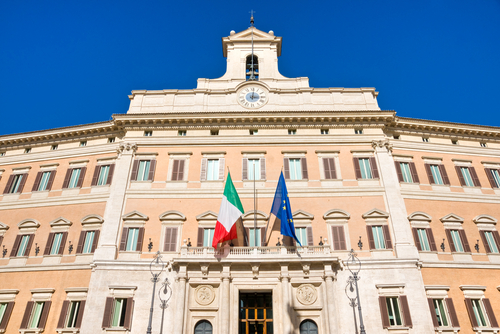Posted on July 9, 2013
by Diego Rigatti and Manuela Di Girolamo
 Italy is slowly changing its trade secret laws to conform to international standards. Italian trade secret protections are found in Articles 98 and 99 of the Italian Industrial Property Code (“the Italian IP code”) and in the unfair competition rules in Articles 2598–2601 of the Italian Civil Code. These laws do not expressly define “trade secrets,” but Article 98, which follows Article 39.2 of the TRIPS Agreement, provides some understanding of the type of information that qualifies for protection. Article 98 protects corporate information and technical expertise, where such information: (a) is secret, i.e., not generally known or readily accessible to experts in the industry; (b) has economic value, i.e. provides a business advantage for the company over its competitors; and (c) “is subject to measures that can be considered reasonably adequate to keep it secret,” i.e., the company has systems to protect the information and only authorized persons can access the secrets.
Italy is slowly changing its trade secret laws to conform to international standards. Italian trade secret protections are found in Articles 98 and 99 of the Italian Industrial Property Code (“the Italian IP code”) and in the unfair competition rules in Articles 2598–2601 of the Italian Civil Code. These laws do not expressly define “trade secrets,” but Article 98, which follows Article 39.2 of the TRIPS Agreement, provides some understanding of the type of information that qualifies for protection. Article 98 protects corporate information and technical expertise, where such information: (a) is secret, i.e., not generally known or readily accessible to experts in the industry; (b) has economic value, i.e. provides a business advantage for the company over its competitors; and (c) “is subject to measures that can be considered reasonably adequate to keep it secret,” i.e., the company has systems to protect the information and only authorized persons can access the secrets.
Under Article 64.1 of the Italian IP Code, employees of a private company do not control the rights to any invention, method, and/or know-how developed as part of their duties within the firm. And the Italian IP Code and Civil Code do not provide for co-ownership of trade secrets. If an employee creates a trade secret as part of his job, it will belong to the employer.
Article 2105 of the Italian Civil Code provides that all employees owe a duty of loyalty to their employer, and prohibits them from misappropriating their employers’ secrets:
“[A]n employee cannot engage in business, either for his own account or for the account of third persons, in competition with his employer nor divulge information pertaining to the organization and methods of production of the enterprise, nor use it in such a manner as may be prejudicial to the enterprise.”
To improve its compliance with TRIPS, Italy amended Article 99 of the Italian IP Code in 2010 to enhance remedies for trade secret violations. The amendments broadened the remedies for trade secret misappropriation to include those provided under the Italian Civil Code for unfair competition. With these amendments, Italy offers broad protection of trade secrets:
(i) infringers can be prohibited from continued use of the misappropriated trade secrets;
(ii) courts may take steps to eliminate the effects of stolen trade secrets, including destroying goods produced from exploiting the trade secret; and
(iii) people who violate the unfair competition laws with fraud, malice, or negligence may be personally liable for damages.
The Italian IP Code also includes the possibility of obtaining compensation for damages. Compensatory damages may take into account the actual loss suffered and the lack of earnings directly related to the violation or, as an alternative, the profit obtained by the breaching party. Infringement cases are heard before a panel of IP experts.
And if the misappropriation is achieved through fraudulent activity, the authorities may prosecute the violation under criminal law and seek fines up to € 35,000.00.

